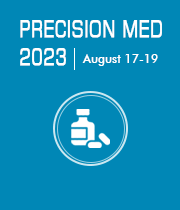Drug target discovery and integration with individualized therapy
The identification of a new drug target, such as an enzyme associated to a disease process, is often the initial step in the discovery and development of first-in-class drugs. Once a new target has been found, several strategies are employed to validate the target and support decisions, such as launching a large-scale drug development programme, conducting a proof-of-concept trial in humans, or collaborating with another company. Inadequate early-stage validation of therapeutic targets has been linked to costly clinical failures1 and low medication approval rates. The use of genomics to inform drug discovery and development pipelines has sparked both excitement and skepticism during the last three decades. Target validation can be characterized in a variety of ways depending on context, but it usually refers to a technical assessment of whether a target plays a crucial part in a disease process and whether pharmacological modulation of the target is efficacious in a given patient population.
- Drug Discovery Pipeline
- 3-D Printing
- Patient-Centric Drug Product
- Mass Customization
- Design Requirements
- Integrating Big Data
- Theragnosis

Bernd Blobel
University of Regensburg, Germany
Roy Gary Beran
University of New South Wales, Australia
Matthias Schwab
University of Tubingen, Germany
Thomas Webster
Interstellar Therapeutics, United States
Boris Tankhilevich
Magtera, Inc., United States
Isabella Friis Jorgensen
University of Copenhagen, Denmark


Title : The use of anti seizure medication therapeutic blood level determination to personalise the treatment of epileptic seizures especially in patients attending the accident and emergency department
Roy Gary Beran, University of New South Wales, Australia
Title : Personalized and precision medicine (PPM) can be established as a unique healthcare model through biodesign-driven and inspired biotech, translational applications. This approach aims to ensure human healthcare, wellness, and biosafety.
Sergey Suchkov, Institute for Biotech & Global Health of RosBioTech and A.I. Evdokimov MGMSU, Russian Federation
Title : Monitoring folds localization in ultra-thin transition metal dichalcogenides using optical harmonic generation
Ahmed Raza Khan, Australian National University, Australia
Title : A systematic review of regulatory approaches for Direct- To- Consumers (DTC) genetic testing
Kavitha Palaniappan, Duke-NUS Medical School, Singapore
Title : Regulatory framework of in vitro diagnostic and artificial intelligence for precision medicine
Pei Ting Sarah Chou, Regulatory Affairs Professionals Society, Taiwan
Title : Unraveling cancer stem cell signatures in circulating tumor cells of metastatic colorectal cancer: Investigating ALDH1A1 and the repurposing potential of disulfiram via scRNA-seq
Nurul Syakima Ab Mutalib, Universiti Kebangsaan Malaysia, Malaysia